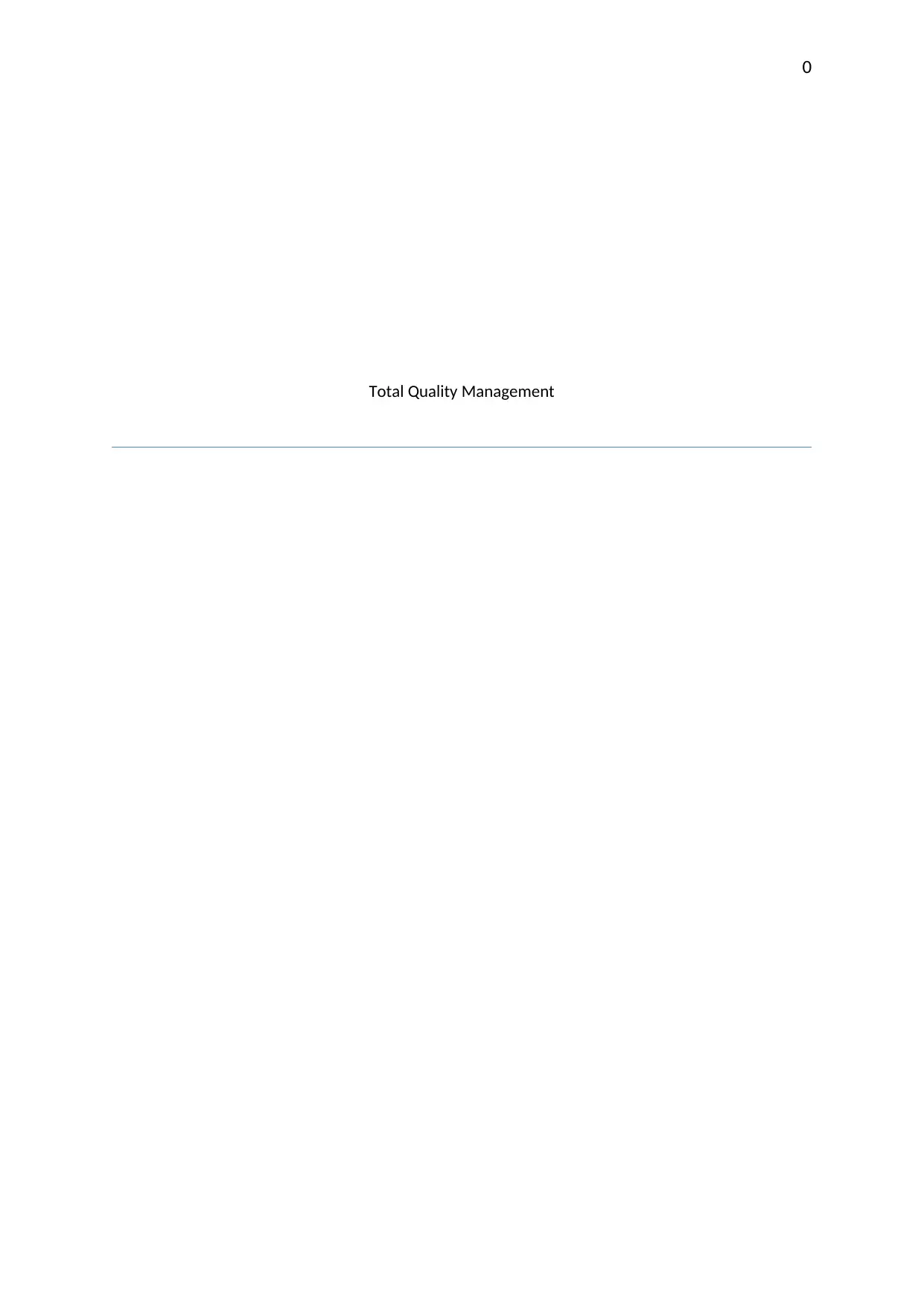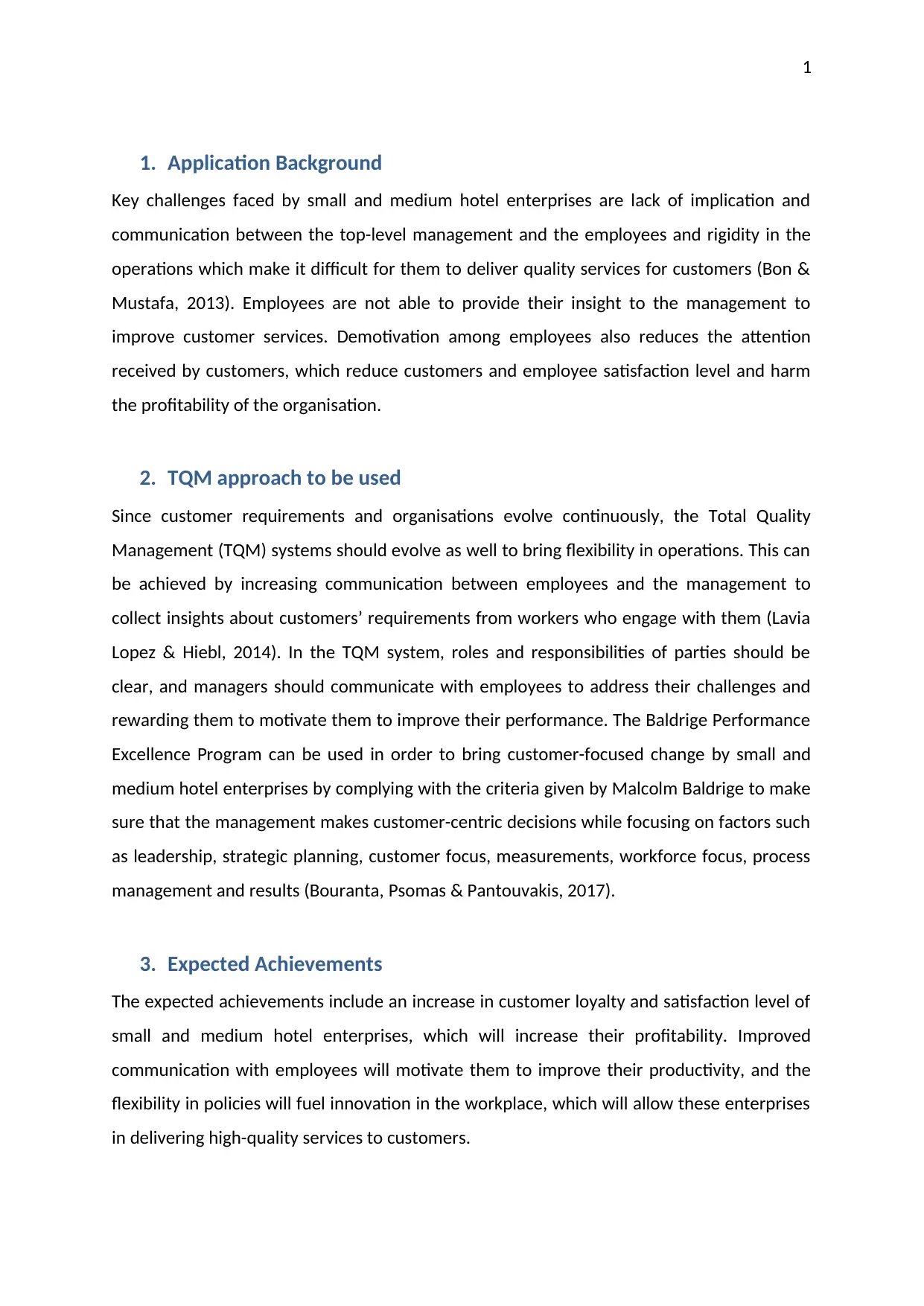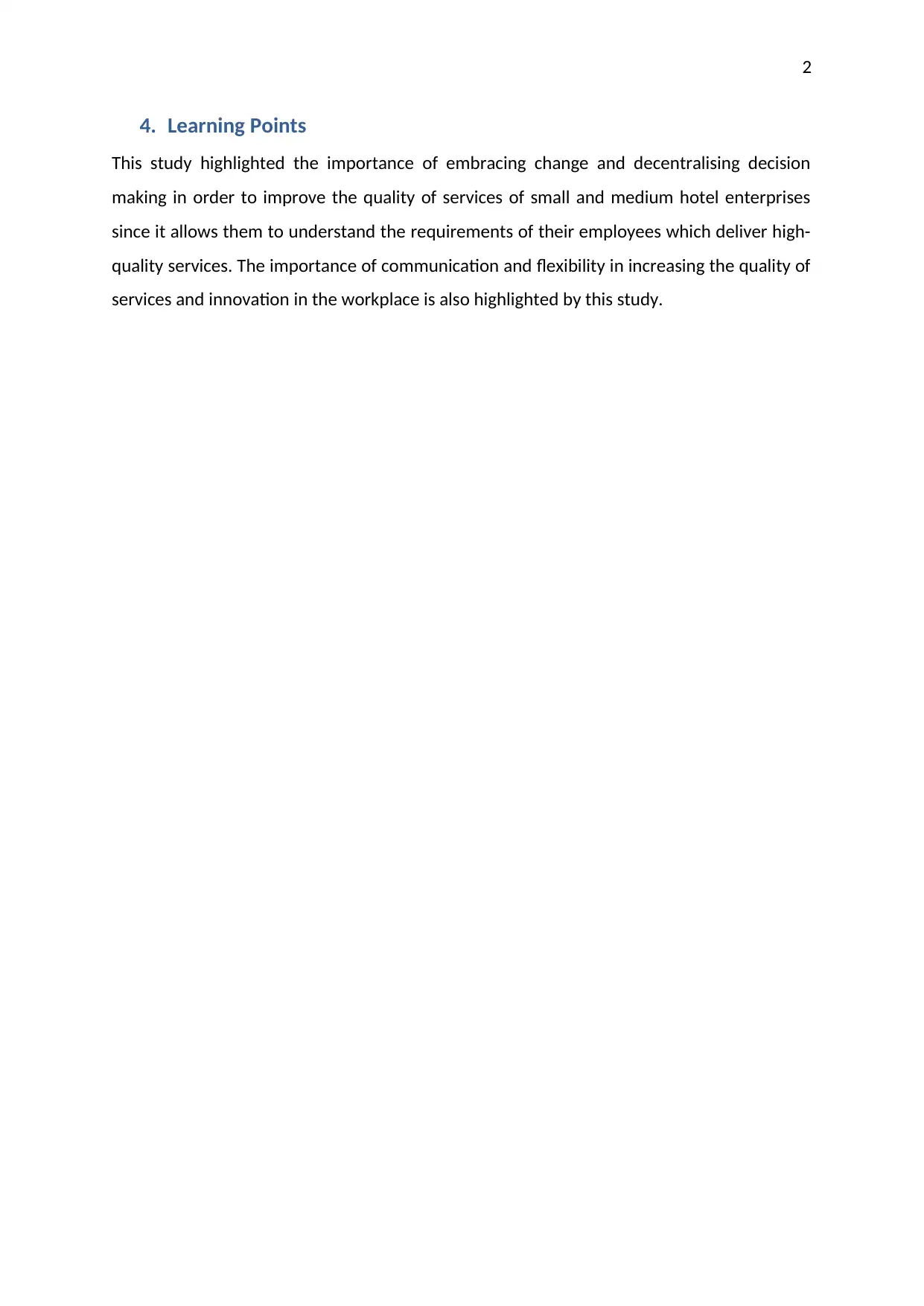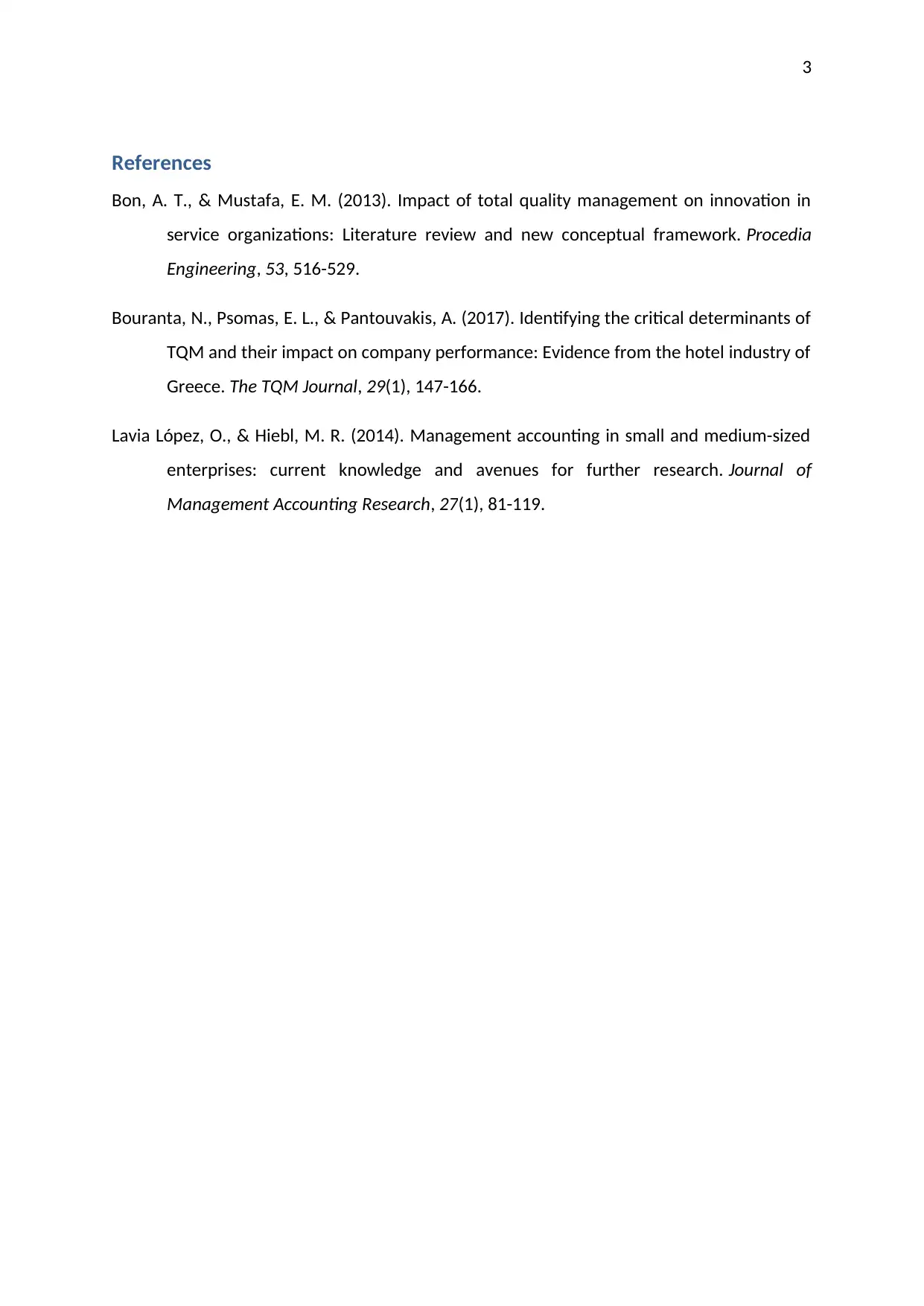TQM Practices, Performance, and Innovation in Small Hotels
VerifiedAdded on 2023/01/03
|4
|531
|48
Report
AI Summary
This report examines the application of Total Quality Management (TQM) principles within small and medium-sized hotel enterprises, addressing key challenges such as communication gaps between management and employees and operational rigidity. It proposes a TQM approach emphasizing increased communication, clear roles, and the Baldrige Performance Excellence Program to foster customer-centric decisions. Expected achievements include enhanced customer loyalty, increased employee productivity through improved motivation, and greater workplace innovation leading to high-quality service delivery. The study highlights the importance of embracing change and decentralizing decision-making to understand employee needs, alongside the critical roles of communication and flexibility in driving service quality and innovation. The report provides a comprehensive overview of how TQM can be effectively implemented in the hotel industry to improve overall performance and customer satisfaction.
1 out of 4











![[object Object]](/_next/static/media/star-bottom.7253800d.svg)